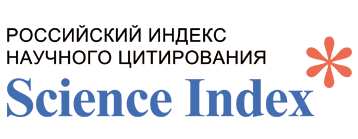ARTISTIC, STYLISTIC AND LINGUISTIC PECULIARITIES OF DRAMATIC WORKS BY TURKIC NATIONS (based on materials of kazakh and azerbaijanian plays)
Аннотация
The article deals with general review of artistic, stylistic and linguistic skills of dramatic works by Turkic nations, previously fundamentally unexplored by the world and Turkic language[1]speaking scientific community. The scientific innovation of the article lies in the fact that the whole variety of linguistic instruments of dramatic effect aimed at implementation of writer's idea was revealed based on particular facts. For the first time, the problems of stylistic and language signs of a dramatic discourse: it is universal by character and unique by the scope of implemented functions: a word can implement any linguistic function. Only a word mark can cover the whole scope of linguistic functions. Word marks bear both communicative as well as pragmatic functions, influence the people around with their meaning, stylistic and expressively emotional pattern. In this respect, the special potential capabilities of a word are revealed at its functioning within a literary text, in which words along with their common meanings also become the means of expressing the playwright's artistic and aesthetic orientation. Comprehensive study of the lexis, etymology, and stylistic skills of dramatic works (tragedy, drama or comedy) of kindred Turkic nations brings us to a conclusion that playwrights, as opposed to their predecessors and contemporaries, very rarely use the typifying role of the extra literary lexis (subdialiects, dialects, slangs, ritual talks).
Ключевые слова:
stylistics, drama lexis, stage language, drama languageБиблиографические ссылки
Baskakov N., 1975. Historical and Typological Description of the Structure of Turkic Languages.
Moscow.
Zajaczkowski, 1956. Mamelucko – Turecka Wersja Arabskiego Traktatu o Lucznictwie z XIV w.
Rocznik Orientalistyczny. t.XX. Warszawa, pp: 139.
Auezov M., 1985. Zhyrma Tomdik Shygarmalar Zhinagy, Vol.9. Almaty, pp: 71.
Shapauov A.K., 2013. The Problems of Study of the Genre of Dramaturgy of Turkic Nations of
Central Asia and the Siberian Region of Russia in its Correlation with the European Dramaturgy
(from Folklore to Drama). Life Science Journal, #10 (7s): 848-851 (ISSN:1097-8135) http://www.lifesciencesite.com. 136. Marsland Press, PO Box 180432, Richmond Hill, New York
, USA, 347-321-7172
Jarry A., 1965. Ubu Roi. Suivi de Ubu Enchaine. Livre du Club du Libraire. Paris.
Wellwarth G., 1986. Modern Drama and the Deauth of God. London, pp: 97.
Beyen R.M., 1971. De Gheldorode ou la Hantise de Masgue. Bruxelles, pp: 49.
Nigel D., 2008. Dramatic Essays. London, pp: 73.
Gadomski S., 2011. Teatr i Dramat w Zjednoczonych Emiratach Arabskich, pp: 24.
Nurgali R., 2001. Drama Onery. Almaty, pp: 132.
Negimov S., 1997. Sheshendyk Oner. Almaty.
Amrakhov A., 1983. Linguistic and Stylistic Peculiarities of Sovyet Azerbaijanian Comedies
/Based on the Comedy by S. Rakhman/. Author's Extract of Thesis of a Candidate of Science, Baku.
Shapauov A.К., 2012. The Kazakh Dramaturgy of the 1960-1990 Period. Monograph. “Sputnik
+”. Moscow, pp: 122.
Zhusipov N., 2013. Legends Devoted to Abylai Khan in the Manuscripts by Mashkhur-Zhusip.
Middle-East Journal of Scientific Research, #14 (4): 485-489. ISSN 1990-
DOI:10.5829/idosi.mejsr. 2013.14.4.2117
Опубликован
Как цитировать
Выпуск
Раздел
Лицензия
Copyright (c) 2021 Bulletin of Shokan Ualikhanov Kokshetau University Philological Series

Это произведение доступно по лицензии Creative Commons «Attribution-NonCommercial» («Атрибуция — Некоммерческое использование») 4.0 Всемирная.











